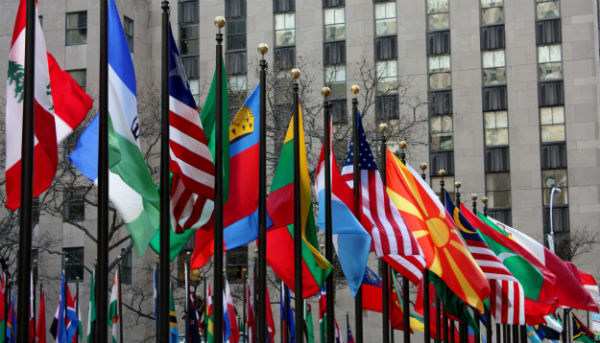FNI advises the UN on new Ocean Treaty

Researchers from FNI and the K.G. Jebsen Centre for the Law of the Sea are in New York this week to give input to the UN on the use of marine resources in areas beyond national jurisdiction.
Their advice comes during the UN negotiations on a new treaty under the Law of the Sea Convention, a process which was launched by the UN General Assembly back in 2015. The goal of the negotiations is to find suitable ways, through a legally binding instrument, to promote the conservation and sustainable use of marine resources in areas beyond national jurisdiction. Such areas cover nearly half of the Earth’s surface and are increasingly coming under pressure from human activities such as fishery, shipping, extraction of the seabed and bio-prospecting – the mapping and usage of genes and molecules from various marine resources.
Marine reserves
 So how do we regulate these resources which are outside the bounds of national jurisdiction? Various political instruments are being discussed, and area-based management tools, including marine protected areas (such as the vast one recently created in the Ross Sea), are among the key topics on the table.
So how do we regulate these resources which are outside the bounds of national jurisdiction? Various political instruments are being discussed, and area-based management tools, including marine protected areas (such as the vast one recently created in the Ross Sea), are among the key topics on the table.
FNI and the K.G Jebsen Centre for the Law of the Sea (JCLOS), to which FNI is a partner, are co-hosting a side-event to the negotiations, on how the outcomes of UN process might affect the ocean governance in the Arctic. How will they play into existing legal regimes in the Arctic region? Will there be overlaps or perhaps potential areas of conflict?
Voices are raised outside the Arctic to give stronger protection to the fragile ecosystems of the Arctic Ocean. At the same time, Arctic states have a legitimate interest in maintaining their influence on the ocean in their backyard. This process provides an opportunity for the Arctic states to take matters into their own hands and move forward with stronger protection measures for Arctic Ocean biodiversity”, says Senior Policy Analyst Christian Prip from FNI.
Need for a special regime?
Prip will give a talk on possible implications for the governance of the Arctic ocean, while Post Doc Fellow Vito De Lucia, JCLOS, will give a talk on whether there is a need for a separate, special regime in the Arctic region. Kjell Kristian Egge, International Law Adviser in the Norwegian Ministry of Foreign Affairs and head of the Norwegian delegation, will provide an overview from a Norwegian perspective. The event will be chaired by Kristine Kraabel, Phd Fellow from JCLOS.
For more information on the side-event, see here.
